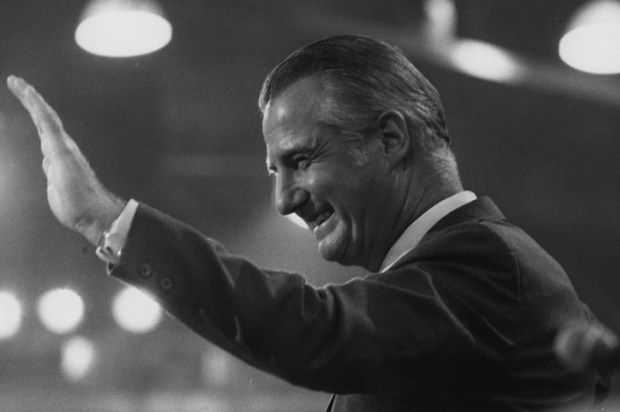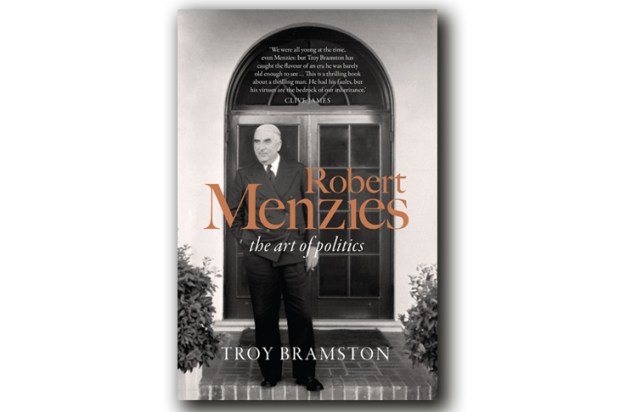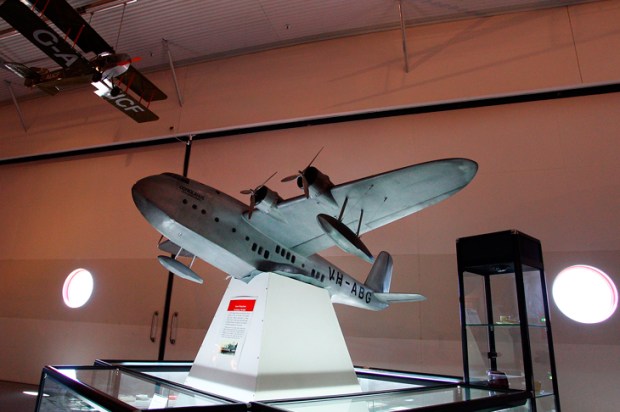Scott Fitzgerald once made the famous observation that there are no second acts in American life. Perhaps. But Mike Carlton disproves this thesis as the journalist now emerges as a military historian of real note.
This conclusion can be drawn readily from the quality of his work in his second major book, First Victory — 1914 — HMAS Sydney’s Hunt for the German Raider Emden which joins an earlier work Cruiser (about the loss of HMAS Perth in the Sunda Strait in 1942), as adding considerably to our understanding of the contribution of the Royal Australian Navy in the first and second world wars.
Mike Carlton is best known as a Sydney radio and newspaper commentator: a man of the barista Left, his acidic pen in Fairfax newspapers usually savages conservatives of a variety of persuasions: Tories, senior Catholic clergy and pompous monarchists. For balance, the NSW Labor Right routinely earns a serve. Carlton is an accomplished satirist, but his enduring sentiment has been to predict the eventual eclipse of all major Australian football codes — being the AFL, NRL and Football — by the Australian Rugby Union. Alas, this projected triumph has proved elusive since the Rugby World Cup was played in Australia in 2003.
However, like his fellow Fairfax columnist Peter FitzSimons, whose military narratives, especially Kokoda and Tobruk, have brought new generations of readers to accounts of Australians in battle, Carlton has succeeded in First Victory in returning a naval engagement to a place of deserved respect and honour.
This is a cracking read, the best of its genre since Richard Guilliatt and Peter Hohnen published The Wolf in 2009, written in a style and with a momentum that would not be out of place in a Patrick O’Brian novel of the sea. The tale of HMAS Sydney’s destruction of the German cruiser Emden is told with both authority and clarity, and with light humour as appropriate.
The first world war touched Australia very early. It is often forgotten that Germany’s Pacific colonies in New Guinea and in the neighbouring islands were the basis for a growing German ambition. The Kaiser’s East Asia squadron, operating in Chinese waters, mainly out of Tsingtao, was a major military presence in the Pacific. The Admiralty in London, however, tended to discount the potential security threat posed by the Germans, relying upon an alliance arrangement with Japan for strategic balance. In particular, Winston Churchill, First Lord of the Admiralty, was dismissive of Australian and New Zealand concerns about Pacific security.
At this point, it is important to acknowledge, as Carlton does generously and accurately, the principal founders of the Royal Australian Navy, being Vice Admiral William Cresswell, after whom HMAS Cresswell at Jervis Bay is named, and Prime Ministers Joseph Cook (Conservative) and Andrew Fisher (ALP). These three Australian leaders saw the need for the creation of an Australian navy not only to defend Australian interests, but to act as a counterweight to respond to hostile intrusions in our waters, be they German or as was feared, by the Japanese. Carlton recreates vividly the historical arrival of the ships of the new RAN in Sydney Harbour on 4 October 1913:
At half-past nine, Mr Alfred Gibson, the master of the South Head signal station, passed the word to the throng that the fleet was in sight some 24 kilometres away, and there was a stir of anticipation.
Gradually, the grey bulk of the Flagship, the battlecruiser HMAS Australia, began to appear, every inch a man-o’-war, smoke pouring from her three tall funnels as she ploughed gracefully through the light swell. Then came her consorts in line astern: smaller ships, the light cruisers Melbourne, Sydney and Encounter; lean and elegant. And, bringing up the rear, three slender torpedo boat destroyers: Warrego, Parramatta and Yarra, all pleasingly named for Australian rivers.
And a note to Tony Abbott and Bill Shorten: Andrew Fisher, true to his Scottish origins, declined a loan to pay for the infant RAN, opting instead to pay cash.
Carlton places Australia on the eve of the first world war in the context of the European imperial contest and he does not see Sydney’s action against Emden in isolation. The confrontation was indeed the first allied victory of the Great War, which, even in its early months, was characterised by slaughter on a mass scale. Carlton also places Emden’s cruise, which was remarkable for its destructive impact, in the context of the broader war at sea; the passage of the German East Asia Squadron across the Pacific to South American waters and the Battle of Coronel; and the manoeuvring in the North Sea between the Grand and High Seas Fleets.
The major players in First Victory come to life, regardless of where they might be found in the warships engaged, from the bridge to the boiler room.
There are certain weaknesses in First Victory. The author slips too easily into cliché, which can be a minor irritant. And he falls for the trap of referring to the ‘von Schlieffen Plan’ for Germany’s invasion of France. No such plan existed. At best, von Schlieffen left a concept, which ultimately could never be implemented (see Max Hastings, Catastrophe).
Emden’s cruise might never have occurred. It was a direct consequence of her Commander, Captain Karl von Müller arguing that his warship could be best employed raiding in the Indian Ocean. In doing this, von Müller knew the dangers:
A lone cruiser would be thrown on her own resources, every port in the Indian Ocean closed to her. She would have to sustain herself on whatever coal and supplies of food she could capture, and, soon enough, the might of the British Navy would be turned to the hunt for her. If the war were to end quickly in a German victory, she might survive, but, if it were to drag on, she would have little chance of ever returning to Germany.
So it was. In this centenary year of the outbreak of the Great War, Carlton has written an immensely readable account of a naval battle critical to Australia’s security. First Victory is military history of the first tier.
Got something to add? Join the discussion and comment below.
Get 10 issues for just $10
Subscribe to The Spectator Australia today for the next 10 magazine issues, plus full online access, for just $10.
Stephen Loosley is a former ALP national president and senator.
You might disagree with half of it, but you’ll enjoy reading all of it. Try your first month for free, then just $2 a week for the remainder of your first year.













Comments
Don't miss out
Join the conversation with other Spectator Australia readers. Subscribe to leave a comment.
SUBSCRIBEAlready a subscriber? Log in